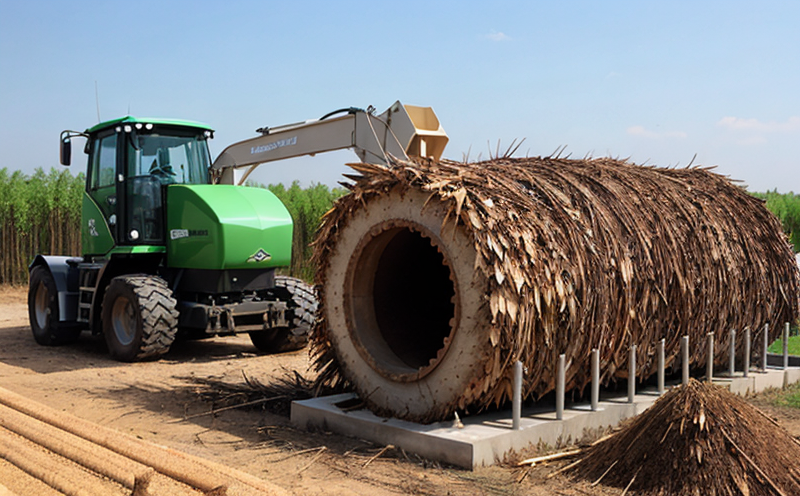Biomass and Biofuels Certification and Testing: Ensuring Sustainability and Quality
The increasing demand for renewable energy sources has led to a surge in the production of biomass and biofuels. However, with this growth comes the need for rigorous testing and certification protocols to ensure that these fuels meet quality and sustainability standards. In this article, we will delve into the importance of certification and testing for biomass and biofuels, the various types of certifications available, and the processes involved in obtaining them.
What is Biomass and Biofuel Certification?
Biomass and biofuel certification refers to the process of verifying that a particular fuel meets certain standards of quality, sustainability, and environmental impact. This involves testing the fuel for its physical and chemical properties, as well as evaluating its production chain to ensure that it complies with international guidelines and regulations.
There are several types of certifications available for biomass and biofuels, including:
ISCC (International Sustainability and Carbon Certification): A certification scheme developed by the European Commission to verify the sustainability of biofuels.
RFS2 (Renewable Fuel Standard 2): A federal regulation in the United States that sets standards for the production and use of renewable fuels, including biomass and biofuels.
EN 14998 (European Standard for Solid Biofuels): A European standard that specifies requirements for solid biofuels, including biomass.
The Importance of Certification
Certification is crucial for ensuring the quality and sustainability of biomass and biofuels. Without certification, there is a risk of adulteration or mislabeling, which can lead to:
Environmental damage: Unverified fuels may be produced from non-sustainable sources, contributing to deforestation, habitat destruction, and climate change.
Economic losses: Non-certified fuels may not meet the required standards for use in industrial processes or as transportation fuels, resulting in lost revenue and reduced efficiency.
Types of Biomass and Biofuels Certification Tests
There are various types of tests that are conducted to obtain certification for biomass and biofuels. These include:
Proximate analysis: A test that determines the moisture content, volatile matter, fixed carbon, and ash content of a fuel.
Ultimate analysis: A test that determines the elemental composition of a fuel, including hydrogen, carbon, nitrogen, oxygen, sulfur, and other elements.
Calorific value: A test that measures the energy density of a fuel.
Key Considerations for Biomass and Biofuels Certification
When it comes to biomass and biofuels certification, there are several key considerations that producers must be aware of. These include:
Supply chain transparency: The ability to track the production and distribution of fuels from raw materials to end-user.
Sustainability criteria: Compliance with international guidelines and regulations for sustainable production practices.
Quality control measures: Regular testing and monitoring to ensure that fuels meet required standards.
The Certification Process
The certification process for biomass and biofuels involves several steps, including:
1.
Application submission: The producer submits an application to the certifying body, providing information on their production chain and quality control measures.
2.
On-site audit: A team of auditors visits the production facility to verify compliance with standards and regulations.
3.
Sample collection: Samples are collected from various stages of production for testing and analysis.
4.
Testing and evaluation: The samples are sent to a laboratory for testing, and the results are evaluated against certification criteria.
QA Section
Q: What is the difference between biomass and biofuel certification?
A: Biomass certification typically focuses on the sustainability and environmental impact of the production chain, while biofuel certification involves verifying the quality and performance of the fuel itself.
Q: How long does the certification process take?
A: The certification process can take anywhere from a few weeks to several months, depending on the complexity of the production chain and the number of samples collected.
Q: Can biomass and biofuels be certified for multiple purposes?
A: Yes, many biomass and biofuel producers obtain certifications for multiple purposes, such as industrial use or transportation fuel.
Q: Are there any costs associated with certification?
A: Yes, certification can involve significant costs, including application fees, audit costs, and testing expenses. However, certified fuels can command a premium price in the market, making the investment worthwhile for many producers.
Q: How often must biomass and biofuels be re-certified?
A: Re-certification is typically required every 1-2 years, depending on the certifying body and industry regulations.
Q: Can non-certified fuels be used for certain applications?
A: In some cases, non-certified fuels may still be usable for specific applications, such as industrial processes or co-generation. However, this is not recommended, as non-certified fuels may not meet required standards or safety protocols.
Q: Are there any international standards for biomass and biofuels certification?
A: Yes, several international standards and guidelines are available for biomass and biofuel certification, including ISO 14064 (Greenhouse gases - Part 1: Specification with guidance at the project level for greenhouse gas emission reductions) and IFOSTED (International Forum on Standards for Bioenergy).
Q: Can small-scale producers or start-ups afford certification?
A: Certification can be a significant investment for small-scale producers or start-ups. However, many certifying bodies offer reduced fees or streamlined processes for smaller operations.
Q: How does certification impact the profitability of biomass and biofuels production?
A: Certified fuels can command a premium price in the market, increasing revenue for producers. Additionally, certification can provide a competitive edge in the industry, allowing producers to access new markets and customers.
Conclusion
Biomass and biofuel certification is crucial for ensuring the quality and sustainability of these fuels. By understanding the types of certifications available, the key considerations for certification, and the processes involved, biomass and biofuel producers can ensure that their products meet international standards and regulations.

































